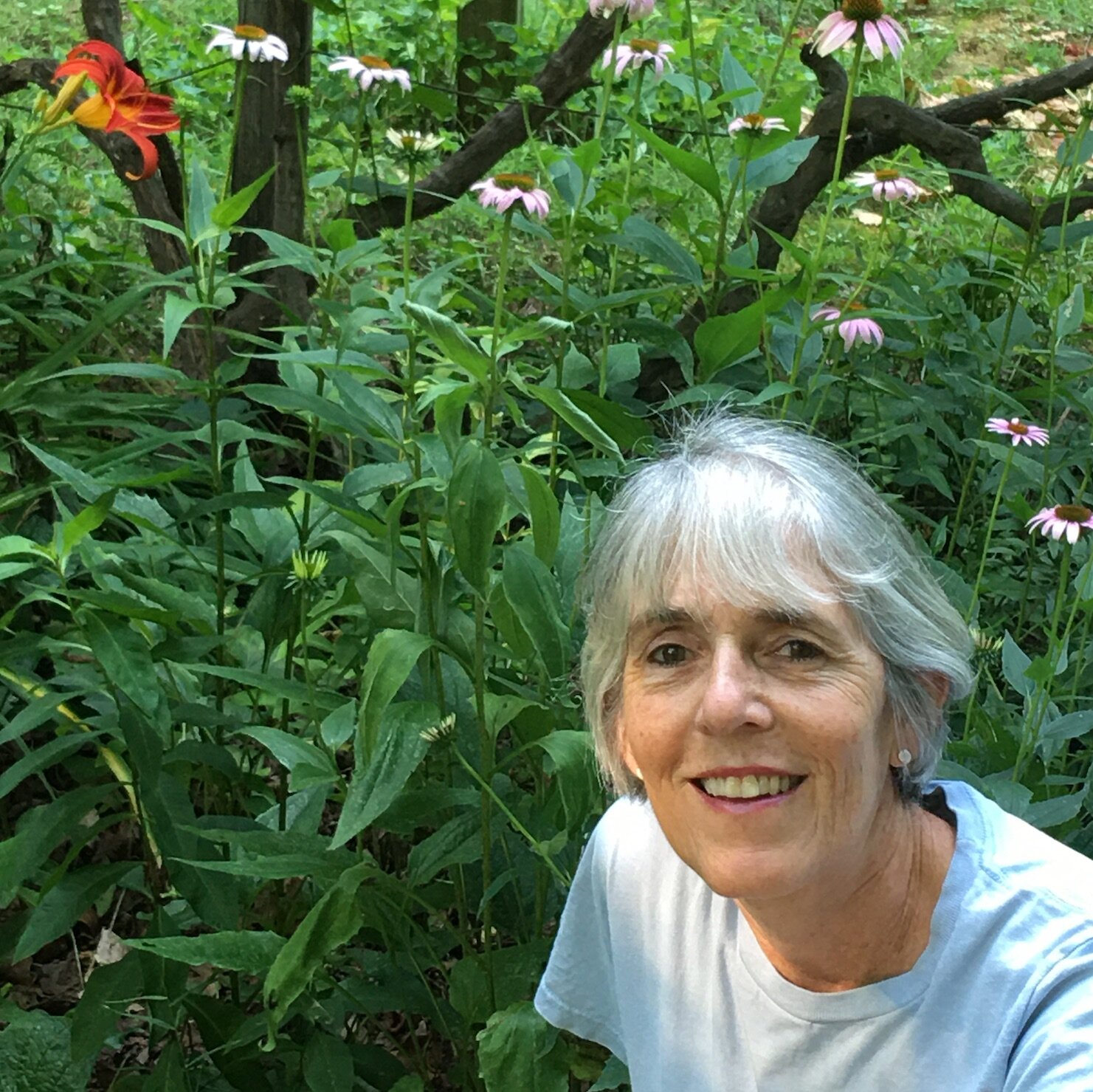July's Climate Leader: Christine Putnam
Meet retired teacher, recycling ambassador, master naturalist, master gardener and all-around advocate for the natural world Christine Putnam! We loved working with her as a Tandem School science teacher with the Better Business Challenge and now in her service on the County’s solid waste alternatives advisory committee (SWAAC). Christine earned her Bachelor of Science at Environmental Science and Chemistry from the University of Northern Arizona, taught at Tandem School for 20 years, and serves on the County’s SWAAC and the Natural Heritage Committee as chair. Learn more about this positive change-maker!
How did you get involved and passionate about the environment?
As a young girl, I lived in Southern Arizona. On the weekends, my dad took my brothers and me on several epic backpacking trips down the Grand Canyon and to the highest peak in the Sierra Nevada Mountains. I loved the quiet beauty of these wild places. Perhaps this is what prompted me at the age of ten to write my first letter to an elected official. I went straight to the top with my letter to President Nixon. I pleaded for better environmental protection. As a teenager, when my dad took us water skiing on the desert lakes, I would refuse to participate in what I viewed to be a gas-guzzling, obnoxious assault on the peaceful quiet of such a lovely place. Instead, I would ask to be left on the shore so I could pick up trash and get away from the roar of speed boats. Perhaps this was the start of my environmental activism.
What are you hopeful about right now?
When I hear young people seeking careers such as solar installers, environmental educators, planners, sustainable farmers, architects, and landscape designers, I know that our future is in good hands. I am grateful for citizen volunteers, elected officials, and staff who serve the public in Albemarle County. Together they are working to tackle complex problems. I am hopeful about aspirational documents like their Climate Action Plan and Biodiversity Action Plan. I think they can be an important guide for the future as long as the public stays engaged.
What is one thing that you think is holding the state or local business community back from greater progress on implementing climate solutions?
One of the biggest things holding us back is the perception that protecting the environment is too expensive, bad for business, or a job-killer. Unfortunately, we often don’t realize the price we pay for kicking environmental problems down the road. Addressing climate solutions can stimulate the economy in many positive ways. For example, making energy-saving improvements to our housing is a great way to create jobs and provide long-term savings for working families by reducing energy bills.
What is a climate action personally or professionally that you are proud of?
I am proud of leading my school through the Better Business Challenge where we instituted a composting program for food waste generated on campus. This initiative would not have been successful without the energy and commitment of a small group of dedicated students. I had the pleasure of taking those students to Conservation Lobby Day in Richmond: a yearly event sponsored by the Virginia Conservation Network. Watching those young people feel empowered to speak to their elected representative in an impassioned and articulate manner has been one of the greatest honors of my life.
What is one thing a school or student or citizen can do today to help reduce climate pollution?
We can all live on less and spend more time connecting with the natural world. There is so much joy to be found in simple things like growing a garden and creating and sharing a meal from what you have harvested. The garden is a wonderful place to observe nature, especially if you let it be wild and leave room for wildflowers, insects, birds, and other wild critters. Spend time enjoying the drama that unfolds there, rather than getting too caught up in the evening news. But when something does bother you or you're feeling stressed out about climate change, take action. Write a letter to your representative, be a change-maker, or volunteer to help other change-makers in your community.
This is challenging work. What is your favorite way to recharge and rejuvenate?
That is an easy question, I spend time in my garden.

